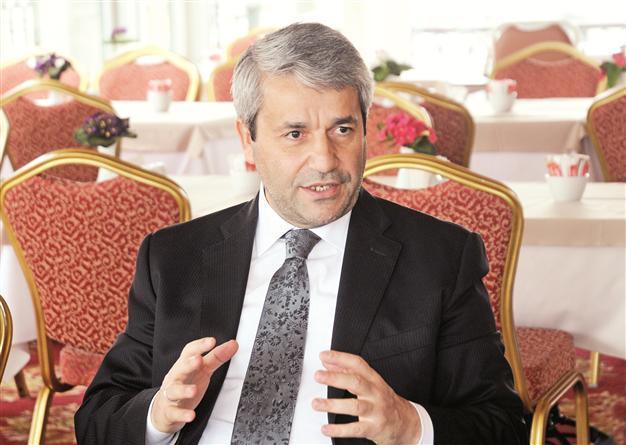Turkish industry minister urges reverse of German workforce flow
ISTANBUL - Hürriyet Daily News

Industry Minister Ergün voices the idea of promoting deals between small- and medium-sized enterprises from Turkey and Germany to reach third markets.
Turkey, one of the historic human-resources providers for Germany, is no longer willing to transfer its qualified labor to the European powerhouse despite new incentives, but is instead calling for a reverse brain gain, Industry Minister Nihat Ergün has said.Turkey made the call at the German Economic Council, a business group founded by Germany’s ruling Christian Democratic Union (CDU), during a recent meeting in Berlin, Ergün said.
“In their speeches [at the meeting], they recalled a deal made in the 1960s. A migration and workforce deal. This had largely supported the German economy. How about making a new labor force deal with Turkey, they asked, but this time suggesting some incentives such as easing the residency of their families in Germany,” Ergün told the Hürriyet Daily News, adding that Turkey had said no to the suggestion.
Germany and Turkey are closely linked by the approximately 3 million people of Turkish origin living in Germany – the largest immigrant population in the country – most of them descendants of the millions who arrived under a “guest workers” program launched in the 1960s.
“You are talking about the lack of qualified labor in your country, but Turkey has also started facing problems in this respect. This means that Turkey cannot transfer qualified labor to [your country]. Do not raise such expectations. Turkey needs that workforce more than ever. You can transfer to us if you have it. We will employ them all, we have such opportunities,” he said.
The expectation of qualified or non-qualified labor from Turkey is not a realistic one, he added. “We should develop other fields of cooperation. That was a field that remained in the past. Today we need new ones.”
Neither Turkey nor Germany is a country that can find cheap labor, cheap energy or cheap raw materials, according to Ergün. “We do not have competitive power in these fields; we should look for the competition elsewhere.
The minister also proposed to the German executives and officials the idea of promoting partnerships between small- and medium-sized enterprises from the two countries to reach third markets.
“We will turn our young and dynamic population into an opportunity in terms of technology-focused entrepreneurship because such a population should be entrepreneurial,” he said.
Recent Turkish Economy Ministry data suggested that nearly half of foreign companies in Turkey are EU-based. Among them, Germany ranks first with 5,158 companies in Turkey.
There are around 70,000 companies in Germany founded by Turkish capital, said Ergün. “Everyone is talking about a doubling of this figure in upcoming years.”
Around 100 high-ranking representatives from top German companies, including BMW, Bosch, Adidas, Nivea, MAN, Allianz SE, Braun, DELTA, Henkel, Hugo Boss and Siemens, were present at the Feb. 28 meeting. The council represents around 12,000 industrialists in Germany.
















